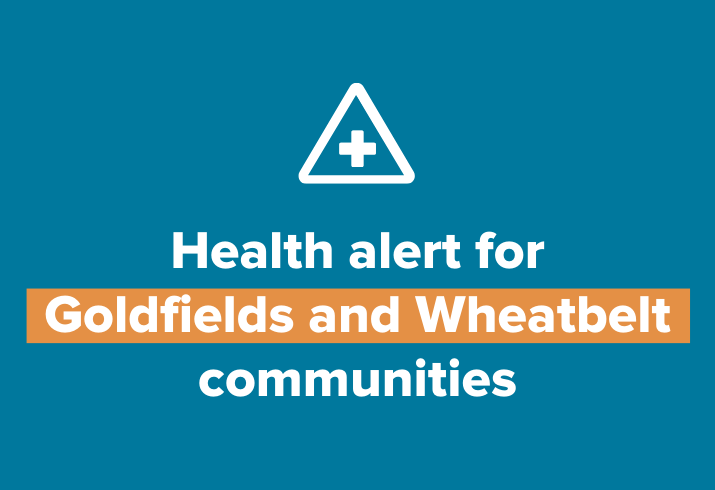Health alert for communities in the Goldfields and Wheatbelt

WA Country Health Service is urging people in the Goldfields and Wheatbelt to take immediate steps to stay safe in extreme heat.
A spokeswoman for the organisation said Kalgoorlie Regional Hospital saw 20 heat related presentations yesterday.
“We know communities are doing it tough at the moment, but it’s really important to follow the health advice to keep well in this heat,” she said.
“It will also help reduce pressure on our already busy emergency departments."
The spokeswoman said WA Country Health Service was working around-the-clock to make sure sites remained operational.
“Our staff are doing an extraordinary job in really difficult circumstances,” she said.
“So far, all impacted sites have remained operational.”
Health safety advice:
- Seek a place to keep cool.
- Close your windows and draw blinds, curtains or awnings early in the day to keep the heat out of your home.
- Keep hydrated by drinking plenty of fluids. Fluids include water, diluted juice (mixed with water) and low sugar sports drinks.
- Limit or avoid alcohol and caffeinated drinks (including tea, coffee and energy drinks) as these can increase dehydration.
- Limit time outdoors. If you need to go outside, try to do so in the early morning or late evening. If you do go outside make sure to put on a hat and sunglasses, apply sunscreen and try to stay in the shade.
- When outdoors, wear lightweight, light-coloured and loose-fitting clothing that covers as much skin as possible.
- Sleep with just a sheet over you in the coolest part of the house. Remove winter bedding and replace it with lightweight, cotton bedding.
- Wrap medications needing refrigeration in foil or heat repellent containers with an icepack to keep them cool if you’re impacted by power outages.
For information on staying safe during a heatwave visit HealthyWA - Heatwaves.
For the latest heatwave forecast visit Bureau of Meteorology.

